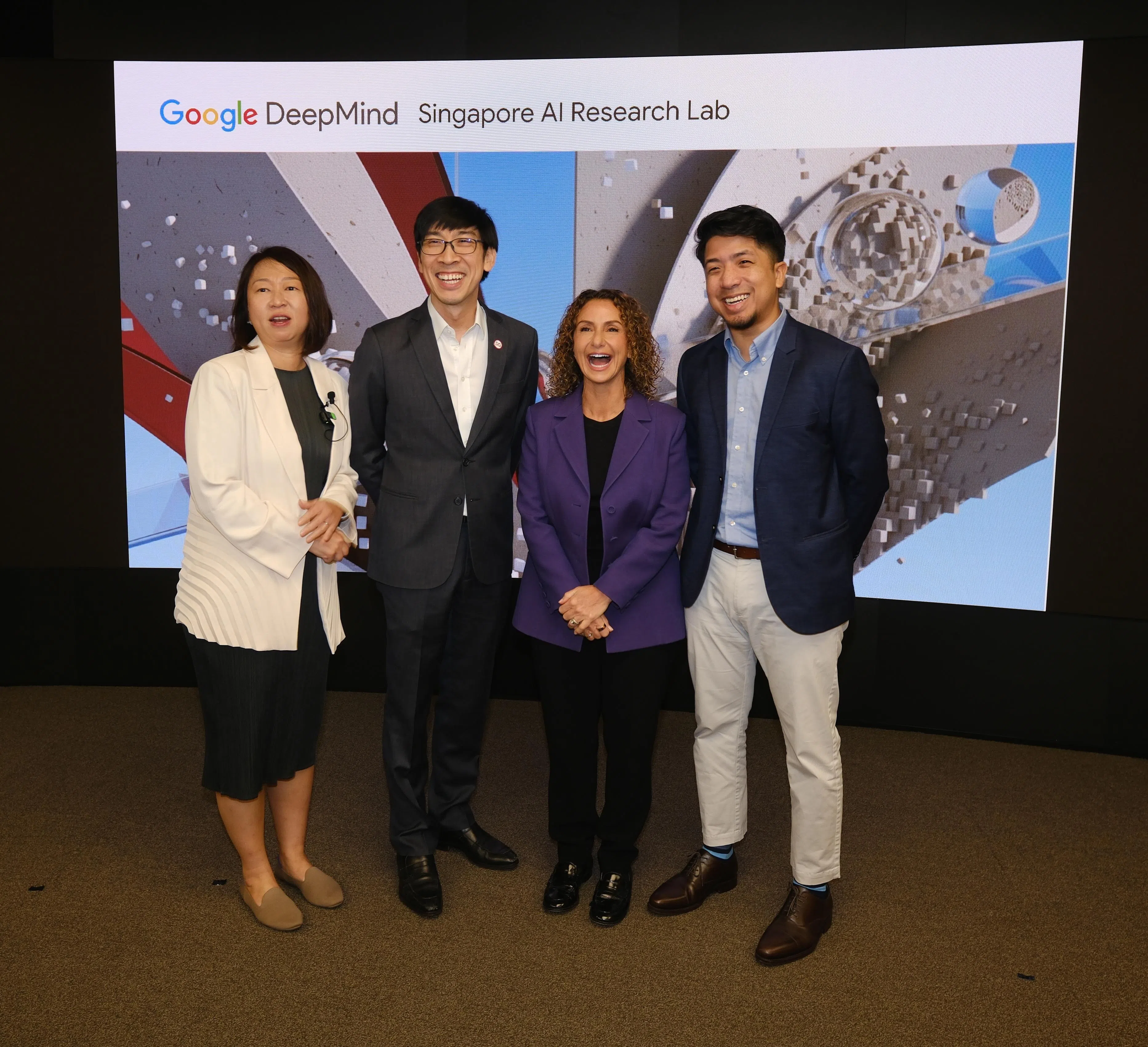Google DeepMind sets up AI lab in S’pore, seeks to boost model’s understanding of local tongues
Sign up now: Get ST's newsletters delivered to your inbox
![CMG20251119-ChungKS01/曾坤顺/张俊/Google DeepMind expands presence in Singapore with new AI research lab [Google Singapore, 70 Pasir Panjang Rd, #03-71 Mapletree Business City II, Singapore 117371].](https://cassette.sphdigital.com.sg/image/straitstimes/806d0a6ffe2cc76c37c19c82556971212d827e3ad7ea561d60bbb33f325c3352)
Google DeepMind, the tech giant's primary AI research division, will be located within its sprawling Pasir Panjang office.
PHOTO: LIANHE ZAOBAO
SINGAPORE – Google DeepMind has set up an artificial intelligence (AI) research lab in Singapore, which will spur existing efforts in improving its AI model’s capabilities in understanding regional languages and cultural nuances.
Through partnerships with local agencies and academic institutions, the US tech giant’s primary AI research team will also be working on improving its AI model Gemini’s reasoning capabilities and creating solutions to tackle global issues such as energy, healthcare and climate.
Singapore is a prime location for the new AI research lab due to its pro-innovation and forward-looking approach, said Google DeepMind chief operating officer Lila Ibrahim during a media event at Google’s Pasir Panjang office on Nov 19. The research lab will be located within its office.
“We need a partnership that helps us balance both long-term and short-term goals,” said Ms Ibrahim. “It’s not just about how to focus on elite applications AI, but also how to make it generally available, and making sure that we’re not leaving people behind in this transformative technology.”
DeepMind, a London-based start-up that was founded in 2010, was acquired by Google in 2014 with a mission to build AI responsibly for the benefit of humanity.
Beyond its work on core products such as large-language model Gemini, the research division’s achievements also include the launch of AlphaFold in 2020, an AI system that accurately predicts 3D models of protein structures.
This technology was used by Singapore’s National Neuroscience Institute and A*STAR to pioneer a breakthrough in understanding Parkinson’s disease, said the team in a statement on Nov 19.
In April, Google DeepMind began collaborating with AI Singapore on Project Aquarium, a platform that sources for data on South-east Asian languages. This, in turn, aids in the development of Singapore’s home-grown AI model Sea-Lion, which recognises 13 regional languages including Malay, Tamil, Thai and Vietnamese.
The localisation of large-language models would help to lower the barrier of entry for humans to interact with AI, said Ms Yolyn Ang, vice-president of Google’s knowledge and information partnerships team in the Asia-Pacific.
“You want to be able to interact with AI that is speaking to you in the right context and tone, which then increases the chances of helpful interactions,” said Ms Ang, adding that Asia is home to many language and grammatical nuances.
“Does it sound too formal? Does it sound like a textbook, or like a friend? Being able to tune it appropriately really changes how people can adapt (to AI). This, in turn, has a deep impact on being able to bring helpful cases into the realms of healthcare and education.”
Ms Ibrahim added that working on an AI model’s understanding of linguistic capabilities does not just extend to text and speech, but also to culturally relevant visual cues.
Google DeepMind has more than doubled its investments in the Asia-Pacific region within the past year, with the latest opening coming on the heels of new labs in Japan and India, said the organisation in its statement.

(From left) Ms Yolyn Ang, vice-president of Google’s knowledge and information partnerships team in the Asia-Pacific; EDB executive vice-president Chan Ih-Ming; Google DeepMind chief operating officer Lila Ibrahim; and Mr Mark Pereira, AI Singapore’s head of partnerships, strategy and growth; at the new Google DeepMind lab.
PHOTO: LIANHE ZAOBAO
It joins a growing line of firms that have set up shop in Singapore to expand their AI research and development efforts, preceded by industry peers such as Microsoft and Alibaba Cloud.
A team of research scientists, software engineers and operations experts will be hired to work directly with governments, businesses, civil society and world-class academic institutions across the region. Ms Ibrahim declined to reveal specific numbers, but added that hiring has already begun.
Hiring began as early as September, when five job postings for roles such as operations manager, engineering lead and research scientists were seen by The Straits Times on Google’s website.
The advertisement for a foundational research scientist lead called for a candidate who would lead the organisation in building AI responsibly, and spearhead efforts in developing novel tools, infrastructure and algorithms.
Partnerships with government and industry are necessary for research to be translated into tangible solutions, said Ms Ibrahim, who cited Google DeepMind’s work with the National Hurricane Center in the US to predict the path of Hurricane Melissa.
“Earlier this week, we released WeatherNext 2, which is our state-of-the-art weather prediction model that can predict weather patterns two weeks in advance,” she added.
“Imagine what this could do for fields like crisis management. So, being able to find the right local partners helps us to build perspective from not just one part of the world, but globally.”
Mr Mark Pereira, AI Singapore’s head of partnerships in strategy and growth, said Google DeepMind’s presence in Singapore also helps the process of translating research into real-world solutions.
“When it comes to the research industry, a lot of research projects just tend to be left on the shelf and don’t really see true use,” said Mr Pereira, adding that the partnership with Google DeepMind allows AI tech to be brought to the masses.
It also means that the Government will be able to tap a global perspective in developing responsible governance of the technology, he added. “We’ve been speaking closely with the Google team to understand what’s good for Singapore and South-east Asia,” said Mr Pereira.
“Having all these different lenses helps to frame what’s the best way we can build a truly safe and ethical AI, a large-language model that’s representative of us in Singapore.”



